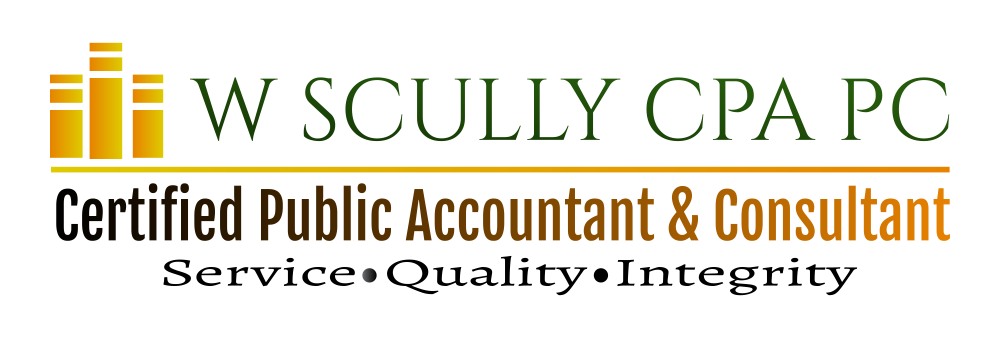Primary Residence vs Investment Property: Understanding the Tax Implications in Jamaica, NY

Consulting on tax strategies for Jamaica, NY real estate investors
Introduction
Ah, the American dream: 2.5 kids and house with white picket fence. And, while that has become increasingly unattainable, folks are still doing it. Thus, as a homeowner in Jamaica, NY, it’s crucial to understand the tax implications of your primary residence and investment properties. Maximum tax benefits and avoiding costly mistakes depend on knowing the differences between these two types of properties. In this post, we’ll explore the key differences and what they mean for tax purposes.
Primary Residence:
Your primary residence is the home where you live most of the time in Jamaica, NY. Consequently, it qualifies for tax benefits like mortgage interest and property tax deductions, which can lead to significant tax savings.
Investment Property:
An investment property, on the other hand, is a property bought to generate rental income or sell for a profit in Jamaica, NY. While it provides tax benefits like deductions for rental expenses, depreciation, and interest, the tax implications differ from a primary residence. The difference may be significant, especially in terms of depreciation expense. Ask my client LaShawn, who will attest to me saving her at least $3,000 in taxes tied to missed depreciation. Apparently, because she self-prepared her returns and did not get great advice from the previous tax preparer, she did not account for all the depreciation allowed. This underscores the reason to obtain the services of a qualified and experienced tax professional.
Tax Implications:
The tax implications of a primary residence and investment property in Jamaica, NY are vastly different. A primary residence offers tax benefits like mortgage interest and property tax deductions, while an investment property offers deductions for rental expenses, depreciation, and interest, subject to passive income tax rules. As a result, you will save way more money with rental property vs your personal residence. Of course, in Jamaica, NY, you may rent a unit at your personal residence. By doing so, you have two homes in one, at least, for tax purposes. Learn more about passive activity rules and how to WIN! https://wscullycpa.com/unlocking-tax-benefits-the-real-estate-professional-designation/
Capital Gains:
When selling a primary residence in Jamaica, NY, you may qualify for an exclusion on capital gains up to $250,000 ($500,000 for married couples filing jointly). Investment properties, however, are subject to capital gains taxes, but you can offset them with depreciation and other deductions. As for capital gains tax, it may not apply to you if your total income is within certain thresholds. I won’t provide details on the threshold, because it is subject to change. Just know that, as mentioned before, capital gains rates are “0,” “15%,” and “20%.” I have a 90-year-old client facing a $50,000 capital gains tax between the IRS & NYS. Luckily, we took a second look at found documentation to support a reduction of $8,000 in taxes. Lean more about capital gainns here: https://wscullycpa.com/minimizing-capital-gains-tax-for-jamaica-ny-real-estate-pros/
Depreciation:
Depreciation is a significant tax benefit for investment properties in Jamaica, NY. You can depreciate the property’s value over time, providing a tax deduction. However, this deduction can be recaptured when selling the property, potentially resulting in higher taxes. Yeah, the issue is the depreciation deduction is one of those tax items where you are damned if you do or don’t. That said, make sure you take the deduction, because you will be penalized later. Read more about depreciation in my other blog post titled, found here: “Depreciation Schedules for Jamaica NY Rental Properties” https://wscullycpa.com/depreciation-schedules-for-jamaica-ny-rental-properties/
Interest:
Interest on an investment property in Jamaica, NY is deductible, but subject to passive income tax rules, which limit the deductibility of losses from rental activities.
Rental income from an investment property in Jamaica, NY is taxable, but you can deduct expenses like property management fees, maintenance costs, and insurance premiums. Meanwhile, the income is not subject to self-employment taxes if you’re actively involved in the rental activity. Then again, if you are operating a short-term rental (similar to a hotel), reporting the activity on a schedule C, you will likely be subject to self-employment tax.
It’s essential to understand the tax laws that apply to primary residences and investment properties in Jamaica, NY. The Tax Cuts and Jobs Act (TCJA) introduced changes to the tax code that affect homeowners and real estate investors, such as the $10,000 limit on deductibility of state and local taxes (SALT). The IRS addressed the SALT tax deduction here in this tax topic: https://www.irs.gov/taxtopics/tc503.
Accurate record-keeping is crucial to maximize tax benefits and avoid audits in Jamaica, NY. Keep records of mortgage interest, property taxes, rental income, and expenses for both primary residences and investment properties. This is huge! By keeping adequate records, you can be better suited to win an audit by the IRS or state.
Understanding the differences between a primary residence and an investment property in Jamaica, NY is crucial for tax purposes. By knowing which category your property falls under, you can maximize tax benefits, avoid costly mistakes, and make informed decisions about your real estate investments. Consult a tax professional to ensure you’re taking advantage of all the tax benefits available to you. Remember, knowledge is power, and understanding the tax implications can help you achieve your financial goals.
* Consider consulting a tax professional to ensure you’re taking advantage of all the tax benefits available to you in Jamaica, NY.
* Keep accurate records of all expenses related to your primary residence and investment properties, including mortgage interest, property taxes, insurance, maintenance, and repairs in Jamaica, NY.
* Consider hiring a property management company to handle rental activities and expenses for your investment properties in Jamaica, NY.
* Take advantage of tax-deferred exchanges (1031 exchanges) when selling investment properties to minimize capital gains tax. Learn more here: https://wscullycpa.com/navigating-like-kind-exchanges-taxes-in-jamaica-queens/
Are you a real estate professional and need help with your tax/retirement planning or accounting? I am here for you! Please contact Wayne Scully (https://wscullycpa.com/about/) by e-mail at [email protected] or by phone at 718.938.4601.
Get a FREE! FREE! copy of Wayne’s book here: www.getmytaxbook.comwww.getmytaxbook.com
Note: This post may contain parts generated with the assistance of artificial intelligence. Thank you for reading!

